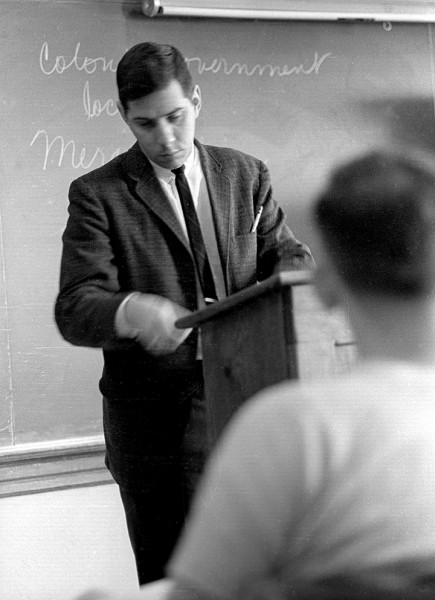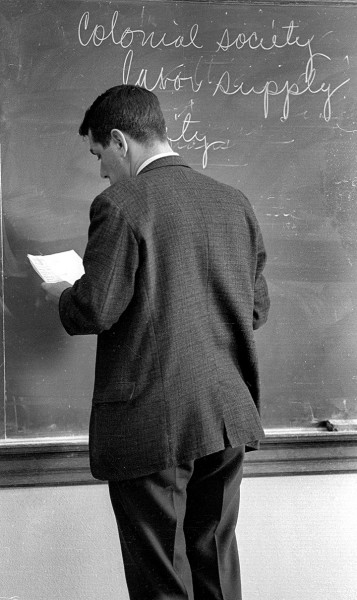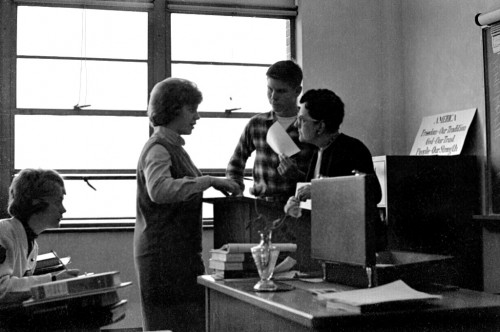 I touched on the dreaded math word problem, stressed out over the rules of grammar, and expressed my intense dislike of cursive writing in earlier posts.
I touched on the dreaded math word problem, stressed out over the rules of grammar, and expressed my intense dislike of cursive writing in earlier posts.
Today we’re going to look at what we were supposed to know in Second Semester American History.
I had Miss Kathryn Sackman and Mrs. Lois K. McKinnis for history. I think the former taught American History, and the latter had World History – or it might have been the other way around. The thing I remember best about Miss Sackman was her jet-black hair.
Nearly got ulcers
Phyllis Hansen commented on another post, “I was so scared of Ms. Sackman I nearly got ulcers in the first month of school, but I developed a great love for history from having had her as a teacher.
In the Class of 1965 reunion bio, Nancy Jenkins Wilson said Miss Sadler and Miss Sackman were her most influential teachers. David Spradling echoed that: “Miss Sackman influenced me the most. She taught me that learning could be fun as well as a challenge.”
Miss Sackman retired in 1972 after 20 years in the Cape school system. Her obituary in the July 8, 1992 Missourian reported that she died on her 87th birthday in 1992. She was the daughter of John Theodore and Barbara Louisa Juden Sackman. Miss Sackman was a graduate of Central High School and Southeast Missouri State University. She did research at Columbia University in New York City and Vanderbilt University in Nashville, Tenn., and received a master’s degree in education from Vanderbilt.
Are you ready for the test?
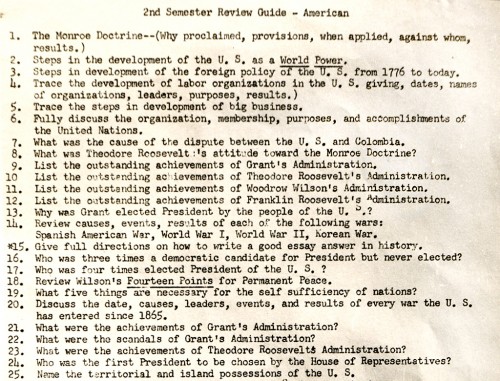 I broke the page into two pieces to make it easier to read, but you will probably still need to click on the image to make it larger.
I broke the page into two pieces to make it easier to read, but you will probably still need to click on the image to make it larger.
“Discuss the date, causes, leaders, events, and results of every war the U.S. has entered since 1865.” A variation says to “Review causes, events, results of each of the following wars: Spanish American War, World War I, World War II, Korean War.”
Kids back then had it easy: look how many fewer wars they had to learn. In fact, I’m not sure we ever made it all the way through World War I; I’m positive we didn’t discuss Korea.
Discuss present day problems
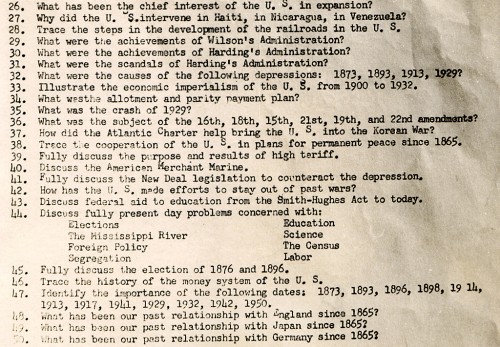 “Discuss fully present day problems concerned with: Elections; Education; The Mississippi River; Science; Foreign Policy; The Census; Segregation, labor.”
“Discuss fully present day problems concerned with: Elections; Education; The Mississippi River; Science; Foreign Policy; The Census; Segregation, labor.”
The problems of the CENSUS ranked right up there with problems of SEGREGATION?
Now that what I used to cover as news has grown enough whiskers that it has become history, I’ve gained a real appreciation for the past. The difference between what we memorized in school and what I find interesting today is discovering His Story and Her Story, not the name of some obscure, long-forgotten treaty, bill or politician.
Tell me the story about Louis Houck’s ghost whistles instead.

